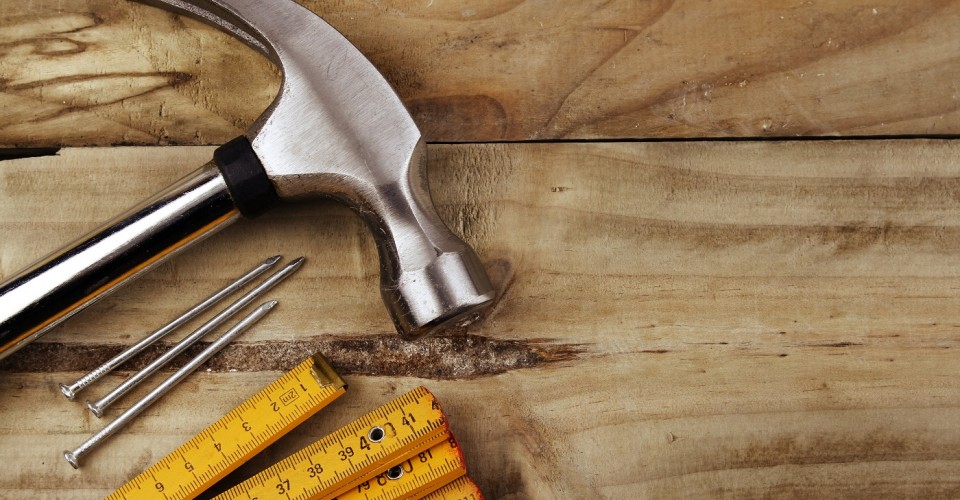Regular home maintenance, including improvements and repairs, is an important part of home ownership. Not only is home maintenance important, it can represent a significant investment in both time and money. Smart homeowners will know how to budget for regular repairs and plan for remodeling projects. Many home maintenance budgets can be kept lower by doing projects yourself. But DIY isn’t always less expensive and may actually cost more. Being honest about your skill level, interest in doing the project and understanding which projects should be done by a professional will help you manage your home repair budget. Before you hire a handyman or other skilled maintenance person, read how to keep your home maintenance repairs on schedule, and consider these helpful strategies when preparing your home maintenance budget.
Average handyman costs
Most handymen work independently and set individual hourly rates. How much you pay hourly for a handyman will greatly depend on where you live and how that professional bids out the project. In rural areas, you can expect to pay anywhere from $30-$50 an hour. In metropolitan areas, prices can average between $40 and $60 an hour. There are some handymen, and professional handyman companies, that will charge a total sum for specific projects based on skill level. If your project is large and requires more hands, you may want to consider hiring a home maintenance repair company who can offer a range of skilled laborers. The repair company will send all of the necessary handymen to your home and charge one fee for the work, so you won’t have to deal with finding multiple repair men or paying them separately.
How to budget for home maintenance repairs
Nailing down an annual price tag for home maintenance repairs is difficult to assess on a national level and for every home. The size and age of the home, as well as the type of property and location will create huge variances. A simple way to estimate your budget for home maintenance repairs is by following the general rule of spending 1-2% of your home’s purchase price each year on home maintenance. If you purchased your home for $500,000 then you should be setting aside about $5,000 each year for repairs or improvement. This doesn’t mean that you will actually spend this amount each year. Keep in mind that some repairs, like replacing a toilet, might only cost a couple of hundred dollars but replacing your HVAC system will cost you thousands. Regularly contributing to a home maintenance account will keep you one step ahead of unplanned repairs as well as feel financially comfortable with scheduled home improvement.
The more vigilant you are about taking care of your home, the less likely you are to face unexpected and costly repairs. Be aware of common repair and maintenance for homes in your area. Regular floods or winter storms, for example, will have a different set of repairs compared with homes in other regions. Regular maintenance and care of the home can definitely help extend the life cycle and being proactive with repairs can also prevent or delay complete replacement. If you can, schedule yearly checks for your home’s water drainage system, HVAC system, roof, appliances and windows. Your home can’t function properly without these components and they can be expensive to replace. Fixing minor issues before they become major issues can save you money and time.
Factors to consider for your budget
Many unexpected issues can arise within your home that require you to hire a handyman or repair person. These problems will likely vary in size and scope, however assessing your home’s risk factors can help you plan for the most likely repairs. Consider these following factors as a baseline for determining home maintenance repairs:
Age – As homes age, they generally require more work to maintain. A new home will probably be affordable to maintain, however a 10-year-old home will require annual repairs, and a 20-year-old home will certainly require maintenance. You should anticipate at least one major expense each year for the older your home is. Older homes are not only more likely to need maintenance repairs, they’re also likely to need major electrical, roofing, or plumbing upgrades to keep your home up to code and for increased efficiency.
Condition – How well your home has been maintained in the past will certainly affect how much yearly maintenance it requires in the future. Taking care of your home now can help you avoid future repairs. If you’re considering buying or living in an old home, remember that the older the home, the greater the risk that a previous owner failed to maintain it. Frequently keeping your house clean, maintained, and up to date will help raise your home’s condition and lower your future maintenance costs.
Home size – If you live in a suburban home with significant property rather than a small condo in the city, your home maintenance costs will be higher. Your suburban neighborhood, or metropolitan condo complex, may require Home Owners’ Association (HOA) dues to cover routine exterior maintenance, however you’re likely to face expenses the HOA isn’t prepared to cover. The larger your home, the more room and space there is to maintain on both the interior and exterior.
Environment – From freezing temperatures to arid conditions, weather plays a big role in how your maintenance can be affected. External factors such as rain damage, wind damage, and other wear and tear issues brought on by the weather in your area will all impact the maintenance and repairs that your home will need. Snow, ice, humidity, sun exposure, extreme foliage coverage, and animal and insect infestations are all means for repairs over time. Include extra room in your budget for any weather or environment impacts that may cause an increase in maintenance costs.
Location – Not only are environmental factors at play, but the location of your home is important as well. If your home is situated in a dangerous area, such as a flood plain, landslide area, bottom of a hill, or deep within the woods, it will be at higher risk for damage from natural causes. Expecting the unexpected for your home will help ensure you have a proper plan for these unanticipated damages.
Creating a yearly home maintenance repair budget doesn’t mean you have to break the bank. You will be able to take care of many small issues yourself. However, if you find you need an extra pair of hands around the house, having enough money already set aside to pay a handyman will mean you have one less thing to worry about. Start looking for the right home maintenance repairman by searching for a trusted professional on Porch.




